Terra-Sorb® product range and stress caused by low temperaturas and freezing
Terra-Sorb® product range and stress caused by low temperaturas and freezing
Stress caused by cold (chilling stress)
Provoked by temperatures too low for the plant’s optimum functioning, but without inducing ice crystal formation inside cells.
Consequences of cold:
On Cell membranes:
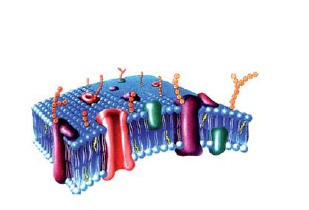
On enzymatic activity
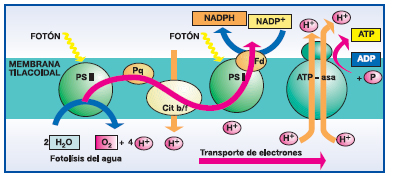
The concentration of the amino acid (proline) is higher in plants accustomed to cold and proline can be found in all the organs of the plant.
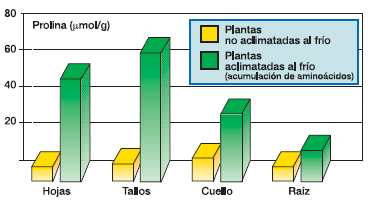
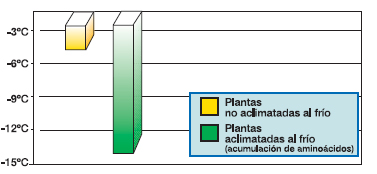
1º An active synthesis metabolism
2º An increase in proteolytic activity
3º A decrease of proteic synthesis from the amino acid pool
4º amino acid transport from one organ to the doctor
The exogenous application of amino acids increases the plant’s tolerance to cold, avoiding energy consumption necessary for amino acid synthesis and accumulation.
Amino acid functions are multiple, because:
1º Since they are osmotocally active substances, they accumulate in the cutoplasm an favour water diffusion from extracellular spaces into cells.
2º Amino acids such as proline, stabilize cell membrane by interacting with phospholids and preventing ice crystal dissemination.
3º They help to maintain an adequate level of storage substances, later used to achieve a faster recovery.
Stress caused by freezing:
It provokes crystal formation on the inside on cells.
Consequences of freezing:
On the xylem:
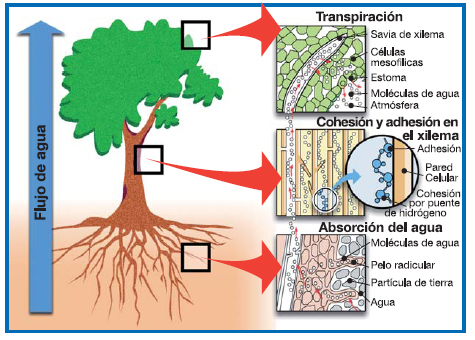
On cells:
On the inside of the cell, ice crystals act as knives breaking the membranes from cellular organelles, causing cellular necrosis.
Extracellularly, freezing provokes a gradient og hydric potential, which releases water from inside the cytoplasm to the outside, causing cell dehydration.

The application of amino acids increase the concentration of solutes, favoring water retention inside cells.

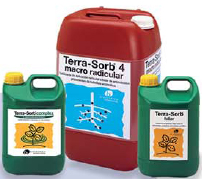
- Terra-Sorb® foliar is an enzymatic hydrolysis product based on easily assimilated amino acids
- Terra-Sorb® complex provides a hight amino acid concentration together with a balanced microelement proportion, very important in cases of nutritional deficiency, apart from increasing solute content.
- Terra-Sorb® 4 marco radicular is more indicated in the presence of remarkable foliar damage, hindering a proper foliar assimilation.
Note: Plant adaption to low temperatures is of extreme economic importance in a great number of crops from warm or template climates. The Terra-Sorb® product range from Bioiberica helps to prevent damage caused by low temperatures and light freezing. They enable a prompter and better crop recovery with less energy consumption fro the plant. One application before the presence of low temperatures and /or freezing helps to better overcome the vegetal stress caused by such damaging climate conditions.